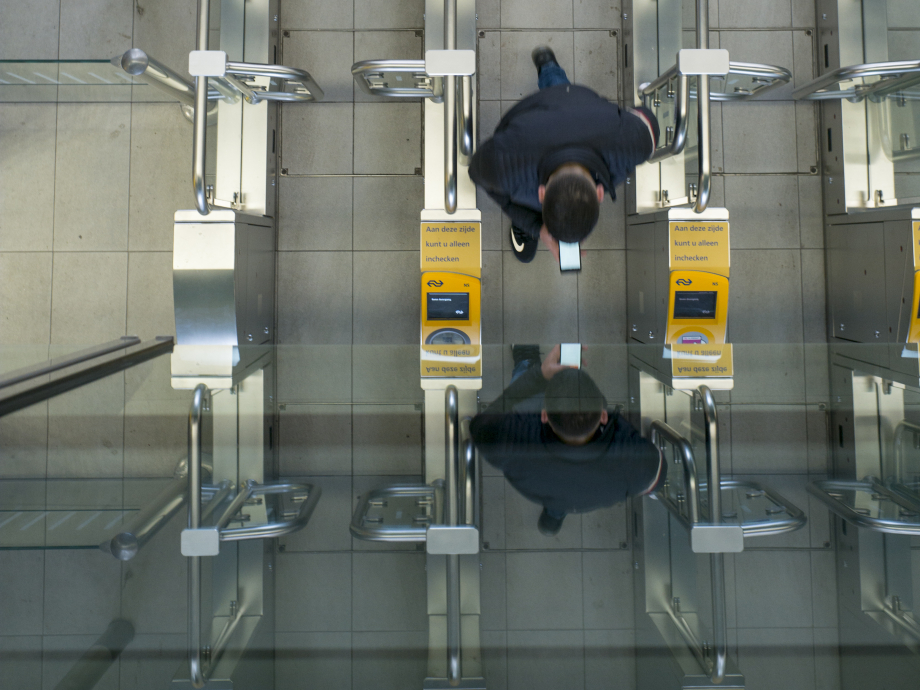Annual Report 2017
This is the annual report 2017 of the Rathenau Instituut.

In our annual report, director Melanie Peters looks back on a year of debate about science and technology. ‘In each case, the question is what sort of society we want to be.’
Download the pdf or read it online:
Searching together for answers to critical questions
‘For more than thirty years, it’s been our task to make progress in science and technology comprehensible to the public and politicians. In 2017, we made an effort to do precisely that. It was a turbulent year, both in science and in technology. It was the year in which digital society lost its innocence for good. We found out that the Dutch place great trust in science, but that is not always the case in other countries. Our work advanced the dialogue on this topic.
We combine science and technology because they are closely intertwined. Without research, there would be no new apps; without innovation, there would be no new labs. But how do we ensure that everyone benefits? Do we all get a say? And is the Dutch knowledge ecosystem ready for the future?
These are the questions that underpin our work programme for 2017 and 2018. We drafted it late 2016 after talking to the public, MPs, policymakers and many others. We used this input to draw up a research and debate agenda into which we incorporated trends provided by other institutes, such as the OECD, UNESCO and our sister institutes in Europe and beyond.
Major challenges of our time
From the Internet of Things and 5G to research funding, our work programme addresses the major challenges of our time. In each case, the question is whether society can adapt quickly enough, and what sort of society we want to be.
‘We combine science and technology because they are intertwined.’
These are questions that many different people and groups should be allowed to answer. As in previous years, we engaged with the general public and received a terrific response on social media. We organized a dialogue with experts from government and business at the Social and Economic Council of the Netherlands.
Our founder Gerhart Rathenau got the Netherlands used to the personal computer; now, we want to do the same for algorithms and artificial intelligence. But what we discovered in the past year is a significant lack of awareness. There is much work to do before the digital society becomes an invitation to everyone. For example, the elderly need to be trained and young people taught. We need new standards for devices that are connected to the internet and our human rights are due for an update in the digital age.
As a society, we expect science to answer many of our questions. But it’s up to us to answer the most difficult questions of all.
Peeling back arguments until we see the worries
Researchers play a significant role in the debate about our future. As a society, we expect science to answer many of our questions. But it’s up to us to answer the most difficult questions of all. We expect advances in medicine, but are we willing to relinquish our personal data to achieve it? Should we be using laboratory animals in research? What are our personal opinions on progress? What are the uncertainties, and which legitimate interests play a role? Why do our opinions differ on issues? We have to keep peeling back the arguments until we see the underlying worries and then search for common ground. That is what we did in 2017, for example in our research on ammonia emissions from agriculture, which are harmful for human health and the environment, and in our investigation into ultra-deep geothermal energy, a promising replacement for natural gas.
We’re raising the bar
My next point is the Dutch knowledge ecosystem, which is in a period of tremendous change. The government wants it to play a leading role on the international stage. Our report Balans van de wetenschap [Science balance sheet] shows that this is already the case, but what does the Netherlands need to do to retain its edge? How do we ensure that the knowledge output of our top economic sectors or our ‘Living Labs’ work for the people who can benefit from them most, such as patients and local communities? Getting expert partners, universities, local authorities and civil society organisations to cooperate on tackling major challenges – for example the transition to sustainable energy, better health care and a safer society – isn’t easy, but it is necessary.
We are pleased with our work in 2017. Our aim in 2018 is to make people and organisations even more aware of how they can take control and help to decide how much influence science and technology have on their lives and their work.
We will be producing reports on digital democracy, modern biotechnology, and public-private partnerships between universities and businesses. We will also continue to encourage dialogue about trends in research, for example by publishing reports on PhDs and the Dutch government’s policy on promoting scientific excellence. We hope to see you again in 2018.’